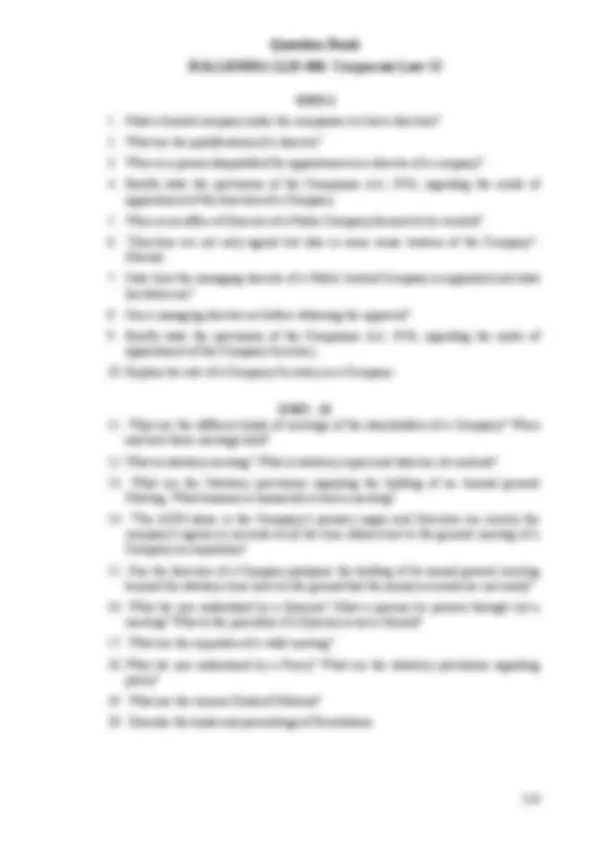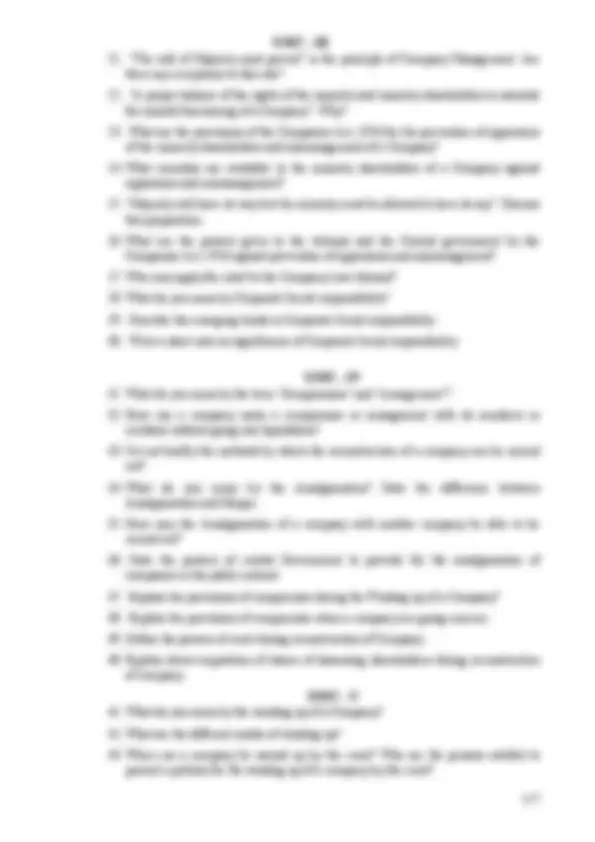





Study with the several resources on Docsity

Earn points by helping other students or get them with a premium plan


Prepare for your exams
Study with the several resources on Docsity

Earn points to download
Earn points by helping other students or get them with a premium plan
Community
Ask the community for help and clear up your study doubts
Discover the best universities in your country according to Docsity users
Free resources
Download our free guides on studying techniques, anxiety management strategies, and thesis advice from Docsity tutors
Company law and administration PDF study material and previous year question papers for NEP students
Typology: Exams
1 / 6

This page cannot be seen from the preview
Don't miss anything!




QUESTION BANK CORPORATE LAWS B.Com (H)- Semester II
MCQs
EGM can be called by a) Board of Directors b) Board on the request of a requisition c) Requisitionists d) All of the above
Petition for Compulsory winding up of a company can be filed by a) The company b) Creditors and also by contributories c) The Registrar d) All of the above
First auditor of a company other than a government company is appointed by a) Board of directors b) Shareholders c) None of these d) All of the above
Producer company is based on the principles of a) Patronage b) Mutual Assistance c) Limited Return d) All of the above
Which of the following documents contain thr rules and regulations to govern the internal management of the company a) Company Act 2013 b) Memorandum of Association c) Prospectus d) Articles of Association
A person who raises a concern about wrongdoing within n organiisation is called a) Promoter b) Whistle Blower c) Inside Trader
d) Auditor
SHORT QUESTION
LONG QUESTION
UNIT – II
UNIT – IV